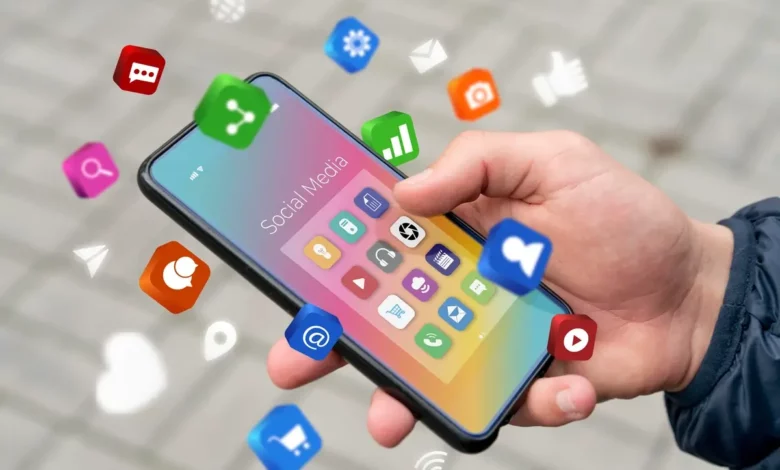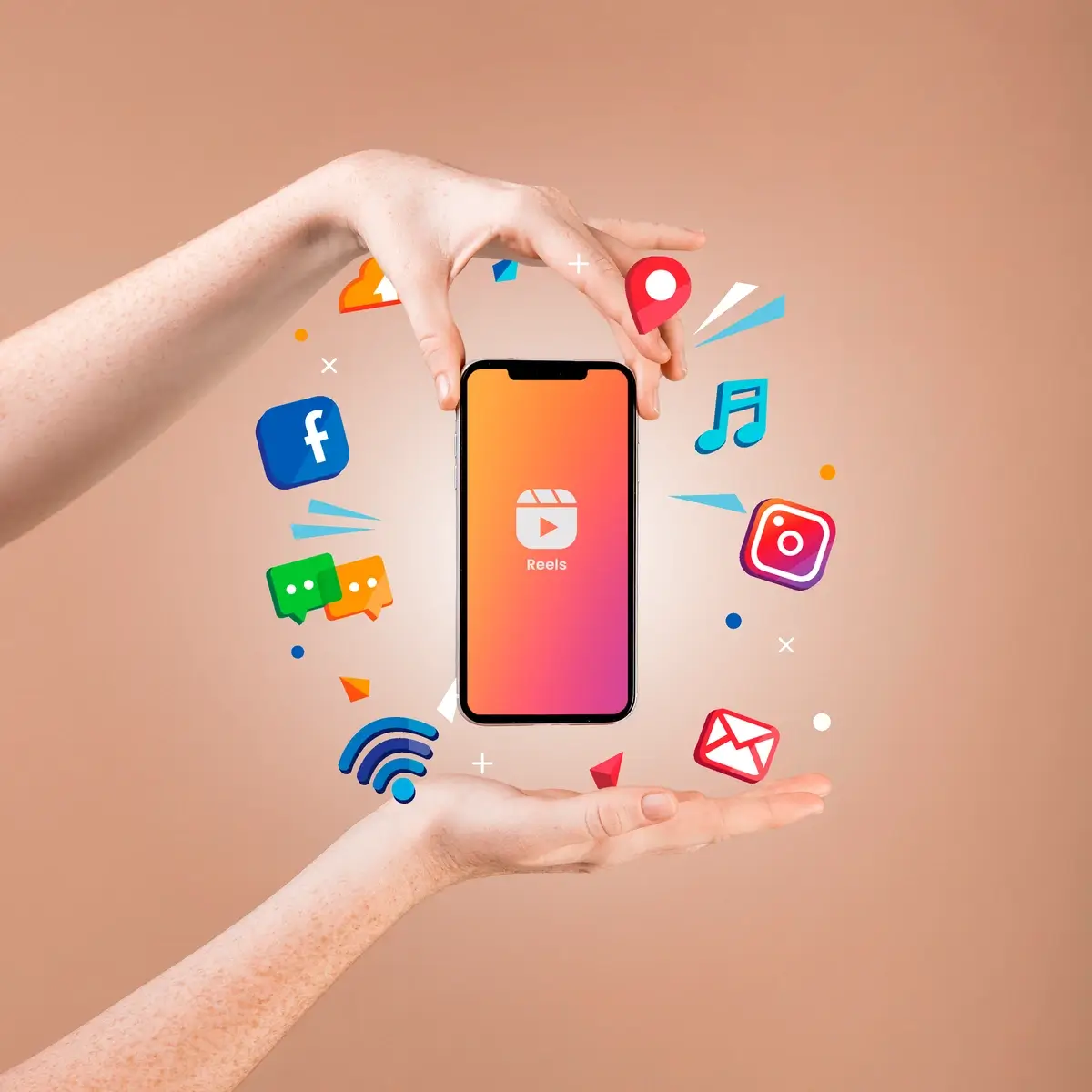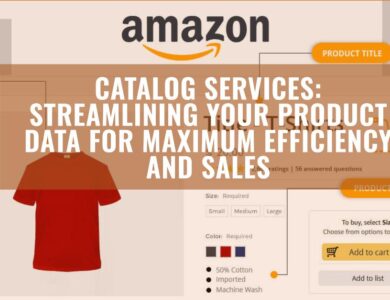What is Mobile App Marketing? – Reach A Larger Audience & Increase Downloads

Mobile app marketing plays a pivotal role in today’s highly competitive digital landscape. With millions of apps available across various app stores, it is crucial for app developers and businesses to effectively promote their mobile applications to stand out from the crowd and capture the attention of their target audience. Mobile app marketing encompasses a wide range of strategies and techniques, including app store optimization (ASO), social media advertising, influencer marketing, content marketing, and user acquisition campaigns. ASO ensures that the app ranks high in search results and attracts organic downloads, while social media advertising and influencer marketing leverage the power of social platforms to reach a broader audience. Content marketing, through blogs, videos, and tutorials, provides valuable information and engages users, fostering loyalty and brand recognition. Additionally, user acquisition campaigns, such as targeted ads and referral programs, aim to acquire new users and drive app installs.
Unique Types Of Mobile App Marketing

Mobile app marketing is a dynamic and ever-evolving field, requiring constant adaptation and innovation to navigate the evolving app ecosystem and achieve sustainable growth for mobile applications. Remember, each strategy may work differently depending on your app’s target audience, goals, and budget. It’s important to evaluate and tailor your marketing approach accordingly for optimal results.
App Store Optimization (ASO)
Optimizing your app’s metadata, including keywords, title, and description, to improve its visibility and rankings in the app store search results.
Social Media Advertising
Running targeted ad campaigns on popular social media platforms like Facebook, Instagram, and Twitter to reach a wider audience and drive app installs.
Influencer Marketing
Collaborating with influential individuals or social media personalities who have a large following and can promote your app to their audience through sponsored content or reviews.
Content Marketing
Creating and sharing valuable content related to your app through blogs, videos, tutorials, or infographics to engage users, establish thought leadership, and drive organic traffic and app downloads.
User Acquisition Campaigns
Implementing various acquisition strategies, such as paid advertising, referral programs, incentivized downloads, or partnerships with other apps, to acquire new users and increase app installs.
Email Marketing
Building an email list of app users or potential customers and sending targeted campaigns to promote app updates, new features, or exclusive offers to encourage engagement and retention.
App Retargeting
Targeting users who have already shown interest in your app but haven’t completed the desired action, such as downloading or purchasing, through personalized ads to re-engage and convert them.
App Reviews and Ratings
Encouraging users to leave positive reviews and ratings on the app store to enhance credibility and attract new users.
Mobile App Marketing – Benefits
Mobile app marketing is essential for maximizing the potential of your app, reaching your target audience, driving user acquisition, and ultimately achieving business success in the competitive app market. It offers several benefits for businesses and app developers.
- Increased Visibility – Effective marketing strategies improve the visibility of your mobile app, making it more discoverable in app stores and search results. This boosts your chances of attracting potential users and increasing app downloads.
- User Engagement – Through targeted marketing campaigns, you can engage with your audience, provide valuable content, and foster a sense of loyalty. Engaged users are more likely to use your app regularly, provide feedback, and recommend it to others.
- Brand Awareness – By promoting your mobile app across various channels, you can increase brand awareness and recognition. Consistent branding and messaging help establish your app as a reputable and trusted solution within your niche.
- Enhanced User Acquisition – Effective user acquisition campaigns can attract new users to your app, expanding your user base and driving growth. By targeting specific demographics and leveraging advertising channels, you can reach potential users who are more likely to be interested in your app.
- Monetization Opportunities – Mobile app marketing can help generate revenue through in-app purchases, subscriptions, or advertising. By acquiring and retaining a substantial user base, you increase your chances of monetizing your app effectively.
- Feedback and Improvement – Marketing efforts provide valuable insights into user behavior, preferences, and needs. User feedback obtained through reviews, surveys, and engagement metrics helps you identify areas for improvement and enhance the user experience.
- Competitive Advantage – With a well-executed mobile app marketing strategy, you can differentiate your app from competitors. By highlighting unique features, benefits, and value propositions, you can attract users who are seeking a distinct and superior app experience.
- Long-Term Growth – Consistent marketing efforts, combined with ongoing app improvements and updates, contribute to long-term growth and sustainability. By continuously engaging with your audience and adapting to market trends, you can maintain and expand your user base.
Mobile App Marketing – How To Implement?
It requires ongoing effort and adaptation. Continuously gather user feedback, iterate based on market trends, and explore new marketing channels to ensure sustained growth and success for your mobile app. Marketing mobile apps requires a comprehensive approach to reach your target audience effectively.
App Store Optimization (ASO)
Optimize your app’s metadata, including the title, description, keywords, and screenshots, to improve its visibility in app store search results. Focus on relevant keywords and compelling visuals to attract potential users.
Build a Landing Page or Website
Create a dedicated landing page or website for your app to provide information, showcase features, and encourage downloads. Optimize it for search engines to increase organic traffic.
Create Compelling App Descriptions and Visuals
Craft clear, concise, and engaging descriptions that highlight the unique features and benefits of your app. Use high-quality screenshots, videos, and app previews to visually demonstrate its functionality.
Social Media Marketing
Leverage popular social media platforms to promote your app. develop a content strategy that includes engaging posts, videos, and relevant industry news. Engage with your audience, respond to comments, and encourage user-generated content.
Influencer Marketing
Collaborate with influencers or industry experts who can promote your app to their followers. Partner with influencers who align with your target audience to maximize reach and credibility.
Content Marketing
Create informative and valuable content related to your app’s niche. This can include blog posts, tutorials, infographics, or videos. Share this content on your website, social media, and other relevant platforms to attract and engage potential users.
Paid Advertising
Utilize paid advertising channels like social media ads, search engine marketing, or in-app advertising to reach a broader audience. Set clear goals, target specific demographics, and track the performance of your campaigns to optimize results.
App Store Ratings and Reviews
Encourage satisfied users to leave positive ratings and reviews in app stores. This helps build trust and credibility, influencing potential users’ decision to download your app.
App Analytics and Iteration
Monitor user behavior, engagement metrics, and conversion rates using app analytics tools. Analyze the data to understand user preferences, identify areas for improvement, and optimize your app’s user experience.







